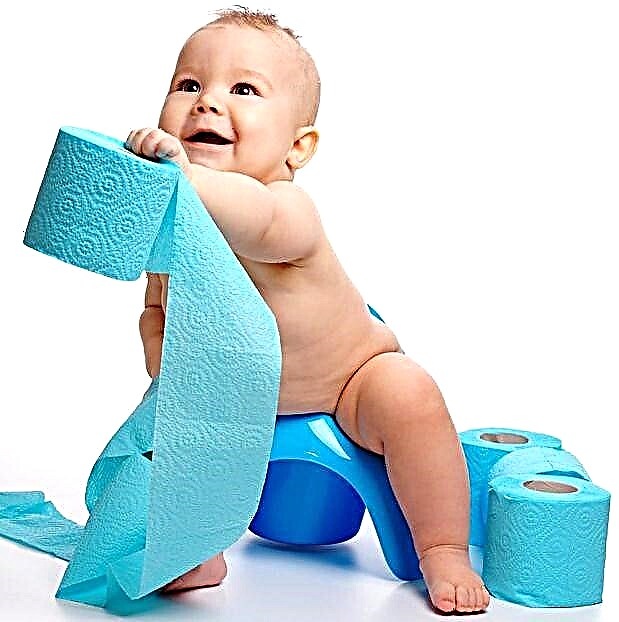What to do if the child does not want to go to kindergarten. How parents can help the child and educators.
Kindergarten is the first institution in which a child finds himself in conditions completely different from home. He is offered new rules to be followed. Of course, this upsets the child, and a rare baby happily runs to the kindergarten. The adaptation can take several months. To smooth out the negative impression of the child from the childcare institution, parents should pay attention to the following circumstances.

Nutrition
"Sadikovskaya" cuisine is very different from home. It smells and looks different, and the taste may be completely unfamiliar. This does not mean that food in the garden is better or worse than homemade food. She's just different. The kid simply did not try many dishes from the state assortment at home. To make acquaintance with kindergarten dishes less harsh, you can start cooking from the same ingredients at home and offer your child food from the kindergarten menu. You can find it out in kindergarten - it is usually posted near the kitchen, in the locker room, or published on the institution's website. You can find out about the recipe and the cooking algorithm from the kitchen workers or the assistant educator.

It takes on average two months to get used to food in kindergarten - during this time the child may eat poorly, and this is expected. If a mother is concerned about nutrition, then she should mentally prepare for this period. Almost every child categorically refuses to eat anything in the first couple of days in kindergarten. Do I need to feed at home in the evening or offer him breakfast in the morning? Each mother decides for herself, but you need to understand that after eating homemade breakfast, the child most likely will not eat in the kindergarten. And if he gets used to having dinner in the garden and at home, this can lead to overfeeding and, in the future, eating disorders.
What to do? Just wait for the time required for adaptation. If, after two months, the child has not begun to eat in the proposed regime, it makes sense to seek advice from a pediatrician or child psychologist. Perhaps the child does not eat not because he does not taste good, but because he does not feel comfortable in the kindergarten. It is impossible to eat food without a sense of confidence, security and comfort. If the child is not eating in the garden, it is the parent's job to figure out how the child is feeling.
- Memo to parents: 20 reasons why a child does not eat in kindergarten, and what to do about it (part 1)
- If the child does not eat anything in the kindergarten: reasons and what to do (part 2)
Important: you haven't left him!

The first visits to the kindergarten are the most painful. The child does not want to part with his parents, he may think that he is being abandoned. To prevent this from happening, it is important to spend a lot of time with the child during the adaptation period. You need to give him maximum attention and energy, play important and favorite games for him. The kid should feel that his family is with him.And the way this will be the time when your phone or tablet will be turned off, and all your attention will be entirely devoted to it.
Daytime sleep
The problem of falling asleep during quiet hours occurs frequently. A toddler cannot relax and feel comfortable in a shared bedroom with many other children. To alleviate this discomfort, you can give your child a toy with you to the kindergarten, with which he will fall asleep. It is important for the kid to choose this toy himself. It may not even be a toy, but some kind of personal item from home. She will give him a sense of peace, security, help to relax. It is necessary to discuss this point with the teacher. Educators are usually accommodating, you just need to inform them about the peculiarities of your child falling asleep.

In the West, there is no such thing as a quiet hour. At least not exactly in the way we are used to. In many European gardens, bedrooms and beds for children are simply not provided. It is believed that if a child wants to sleep during the day, he will sit on a sports mat, and in the same clothes in which he was brought to the garden.
Domestic teachers are of the opinion that in preschool age children need a daytime sleep. Many children do not share this opinion and by the age of three or four, they completely give up daytime sleep. But in the kindergarten you need to adhere to the established regime. During the quiet hour, it is required that the child be in bed and, if not asleep, then at least lie still. It is very difficult to achieve this from a sleeping child.
In most cases, after a period of adaptation, even children who have given up daytime sleep fall asleep during quiet hours. If the child flatly refuses, then the parents should talk to the caregivers and jointly find a pastime for the baby while the other children are sleeping. For example, a child can play silently in the playroom or draw or look at books. Also, parents can give him a player with audio books. But this option is only suitable for children who can be quiet and not distract other children and caregivers for a while. Yes, you need to understand that a kindergarten is an institution in which there are many children, which means that there cannot be an individual approach there. The teacher will not work with one "irregular" child when the rest adhere to the established regime.
Usually, educators adhere to a rather tough position: during the quiet hour, the sleepy baby should be in bed and lie quietly so as not to wake anyone up. In fact, for a child at this age, such a task turns out to be unbearable and turns into torture. Think about how you would feel if you didn’t want to sleep but were forced to lie in bed for two hours every day, staring up at the ceiling. But this is exactly what the educators call the child to - no one will entertain your baby with a quiet conversation or read fairy tales to him. Only parents can defend the interests of the baby in such sad realities. Talk with the caregivers, with the manager and try to come up with the option that will suit your child. For example, you can agree that during a siesta, the baby will quietly go about his business in the play area, or the teacher will turn on an audio story for him in the player.
A delicate problem

The child can signal in different ways that he is uncomfortable in the kindergarten. One of these signals is the refusal to defecate in the kindergarten. Children often do their “big” toilet duties only at home. It has nothing to do with potting skills. A child can just relax for such an intimate process only in the home, and in the kindergarten he is uncomfortable. During adaptation - that is, in the first two months - this is normal, but then, if the baby has not been able to cope with this discomfort, parents can talk about it with a psychologist.
Conflicts
Fights and other conflicts in the garden are common and natural. Children interact, learn to communicate. Few people are born with ideal behavior - this needs to be learned, and in the process of learning, children both fight and bite. Good manners will be learned gradually. But you will help the baby a lot, start right now to teach him to get acquainted with other children, politely ask for the toy he likes and wait for his turn. These simple lessons can be taught to your toddler while walking in the playground. But useful skills are not learned right away.

If a child fights in kindergarten, parents need to be especially careful. Do not think that everything will go away by itself, or that educators will deal with this problem. But the parents are raising the child, not the kindergarten. That is why the teacher only talks about the conflict or fight, and also tries to prevent it within the walls of the institution, but at the same time strongly recommends that the parents talk with the child. The problem is that talking about fighting with a three-year-old is useless. He does not accept notation - neither from parents, nor from teachers. The only way out is to stop aggression on the spot. This is what the educators are doing in the garden. But the rest of the time this is the task of the parents. Only the joint work of teachers in the kindergarten and parents at home or on the playground can bring success.
Mode change
Kindergarten is an institution ruled by the regime. Observing it is an important condition for a preschooler and his parents. The best thing parents can do is to prepare the baby for the regimen. It is worth starting preparation a couple of months before the first visit to the garden. It is necessary to show the child that there is a certain time for meals, activities, daytime sleep. The hardest thing for children is getting up early.
- How to wake up a child in kindergarten
- How to wake up a child in the morning in kindergarten without torment and whims
Parents and themselves need to get used to the new schedule, because when the baby becomes a "kindergartener", morning training will be joint. A calm morning is the key to a successful day. It makes sense to calculate how long it takes to get ready to go to kindergarten, prepare for them and even rehearse. Such preparation will help to avoid morning tears and scandals, the child will come to kindergarten calm and ready for new discoveries. Isn't this the main goal of parents?
If every morning goes by in irritation, tears and haste, and the training camp resembles a race for survival, the baby will come to the garden in an agitated state and in a completely inappropriate mood. Just imagine how he will spend his day after such a "good" morning.
- Parents' mistakes that make the child reluctant to go to kindergarten
- Adapting a child to kindergarten: what parents need to know
- Home education as an alternative to kindergarten: advantages and disadvantages
- What a child should be able to do before kindergarten - 4 useful skills
- 7 skills a child should learn before kindergarten



